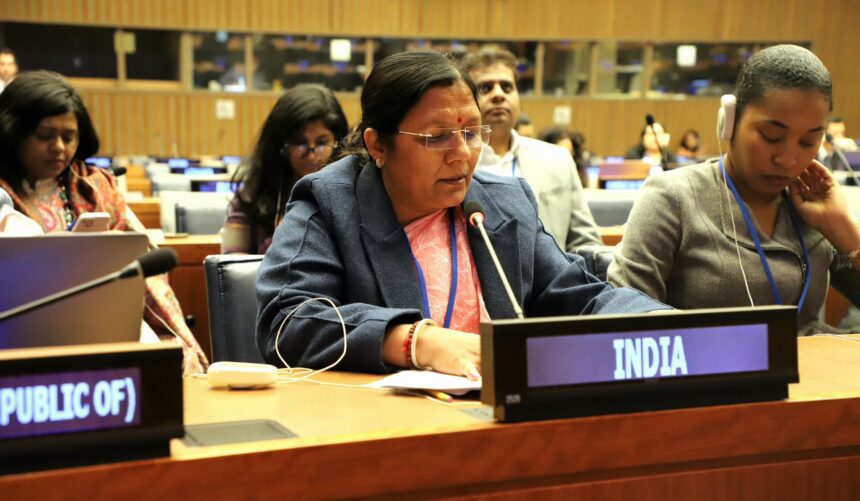NewzVille Desk
Representing India Savitri Thakur, the Minister of State for the Ministry of Women and Child Development addressed the 63rd session of the Commission for Social Development (CSoCD), held from 10-14 February, 2025 at New York.
The session aimed to encourage discussions and collaborations on pressing social development challenges, with an emphasis on advancing inclusive social policies and fostering global social well-being. The session witnessed participation from 49 Countries including Ministers from 16 countries like France, Türkiye, Saudi Arabia, Sweden, etc.
India expressed its appreciation to the Commission for its leadership in discussing the importance of strengthening solidarity and social cohesion to ensure no one is left behind. Since the 1995 Copenhagen Summit on Social Development, India has made significant progress in addressing poverty, malnutrition, and universal healthcare, while also pioneering digital public infrastructure for sustainable development. By aligning with global best practices and developing indigenous solutions, India has become a model for the Global South.
Addressing the Session, the Minister highlighted that India is driven by the vision of “Sabka Saath, Sabka Vikas, Sabka Vishwas” (Development for All), with a focus on inclusivity. Through initiatives like the JAM TRINITY (Jan Dhan, Aadhar, Mobile), India has achieved financial inclusion for disadvantaged communities, especially women, persons with disabilities, and the elderly. The country has also embraced “Women-led development,” ensuring women are key players in shaping the development trajectory.
She said that India has launched large-scale programs to bridge the gender digital divide, promoting digital and financial literacy, especially in rural areas. This has empowered millions of women entrepreneurs, from start-ups to scalable businesses.
As India works toward accelerating progress on the 2030 Agenda for development, increasing women’s workforce participation is a key priority. India’s robust social protection model includes 26 weeks of paid maternity leave, maternity benefits for 37.5 million mothers, a network of One Stop Centres, and an integrated National Women’s Helpline. Additionally, India’s early childhood care, nutrition, and education initiatives benefit over 100 million children, mothers, and adolescent girls.
India supported the resolution on the priority theme and is progressing with the concept of saturation in social protection to ensure the delivery of essential services to the poorest populations, addressing multidimensional poverty.






